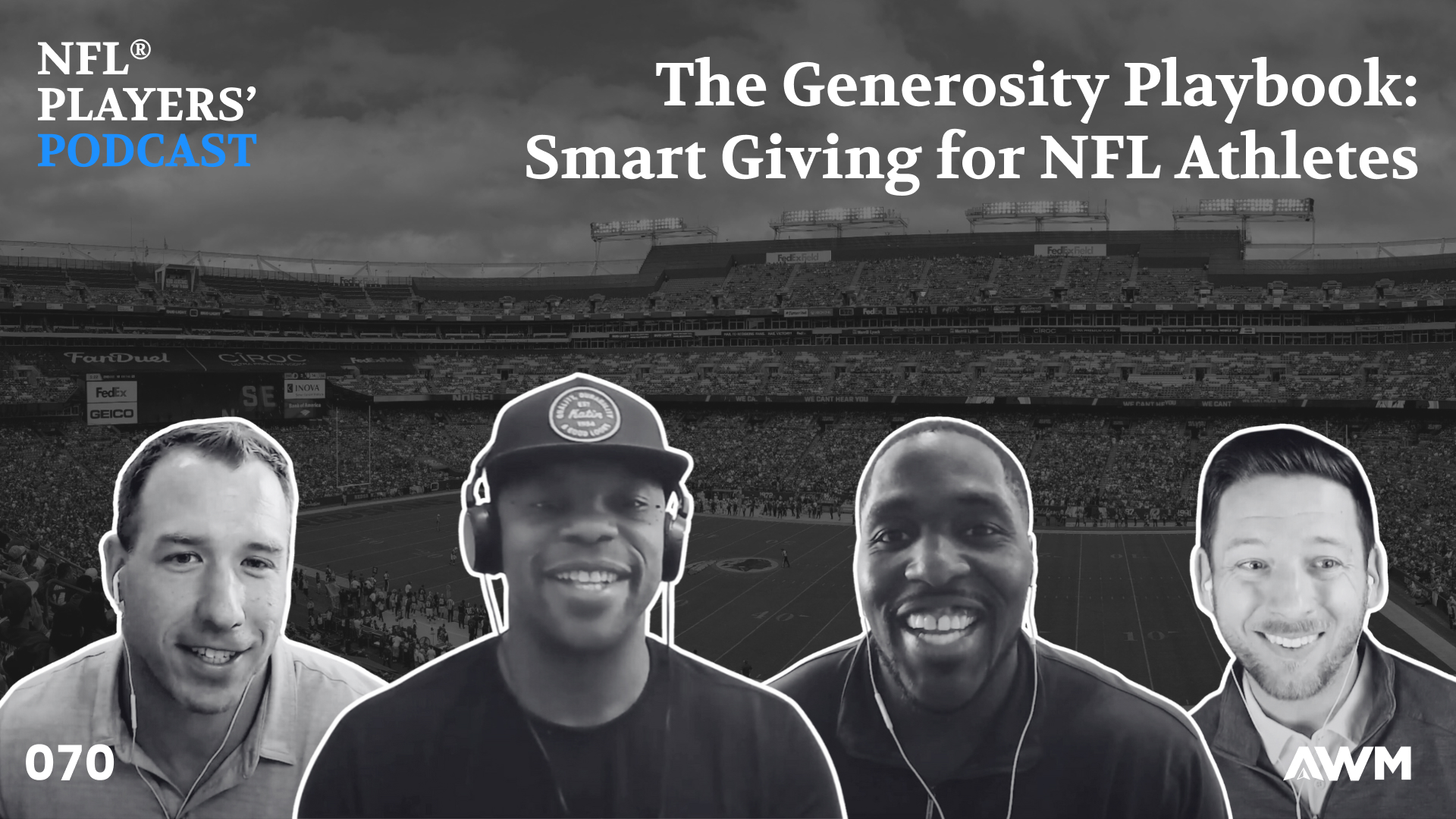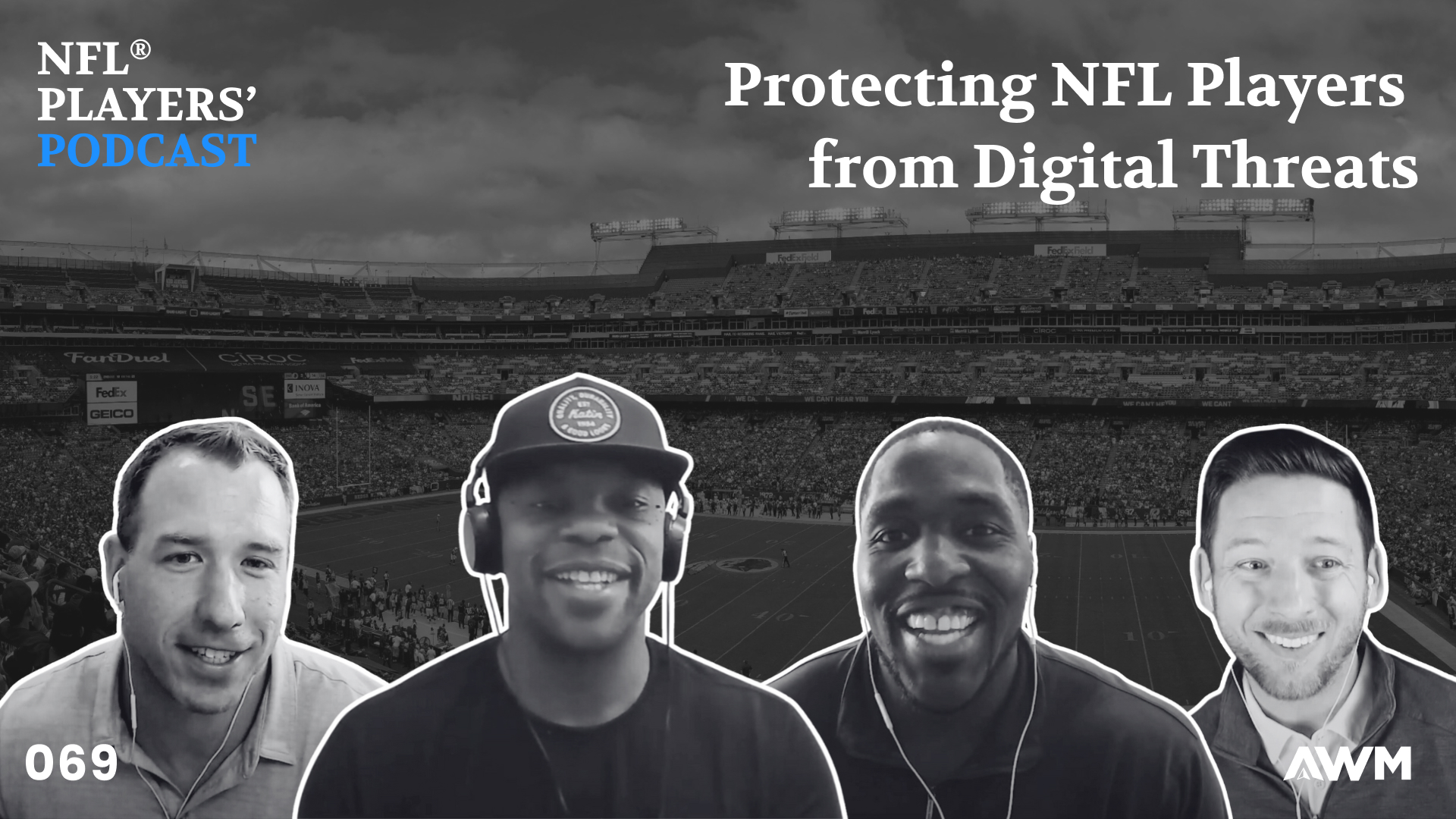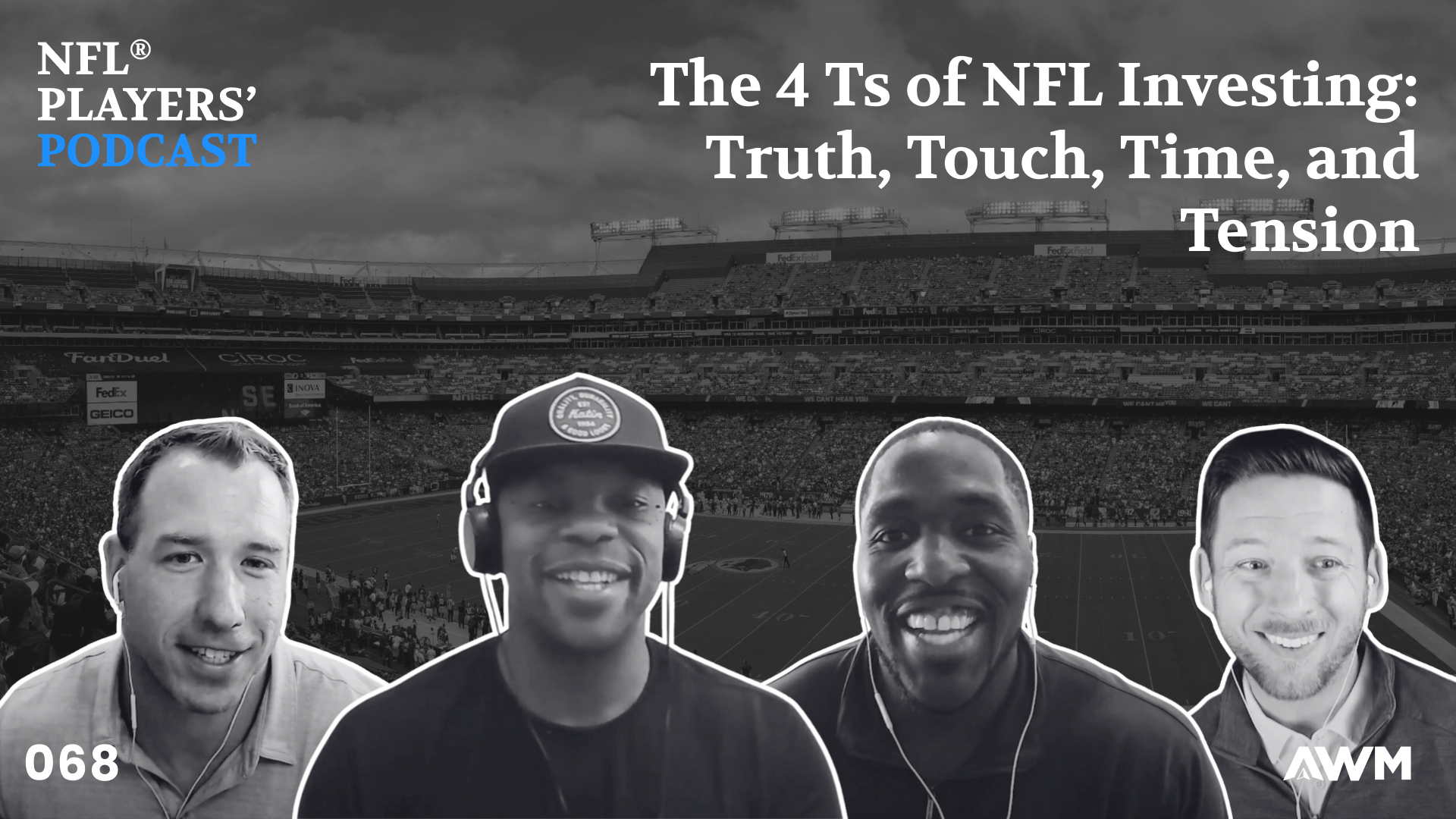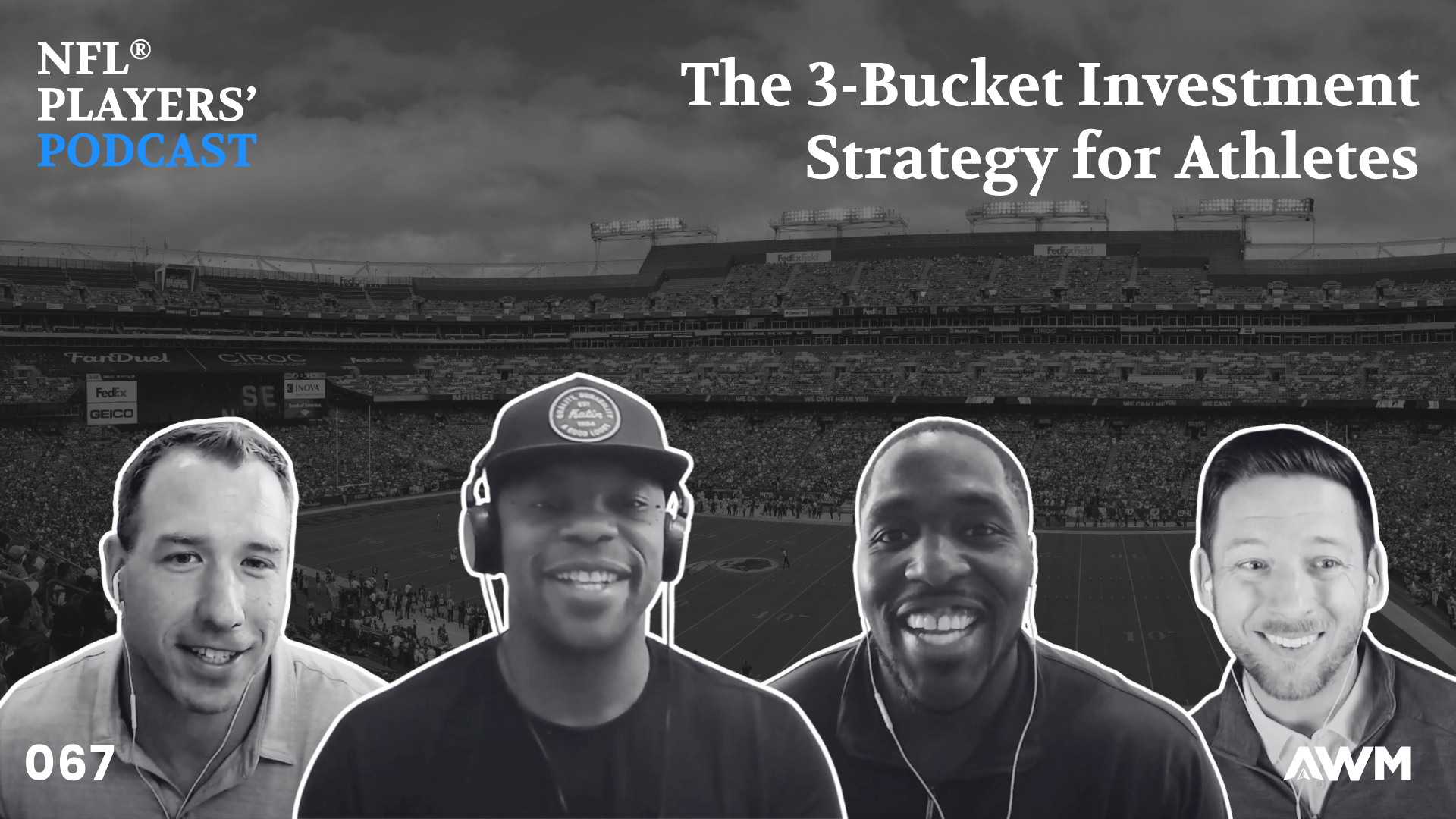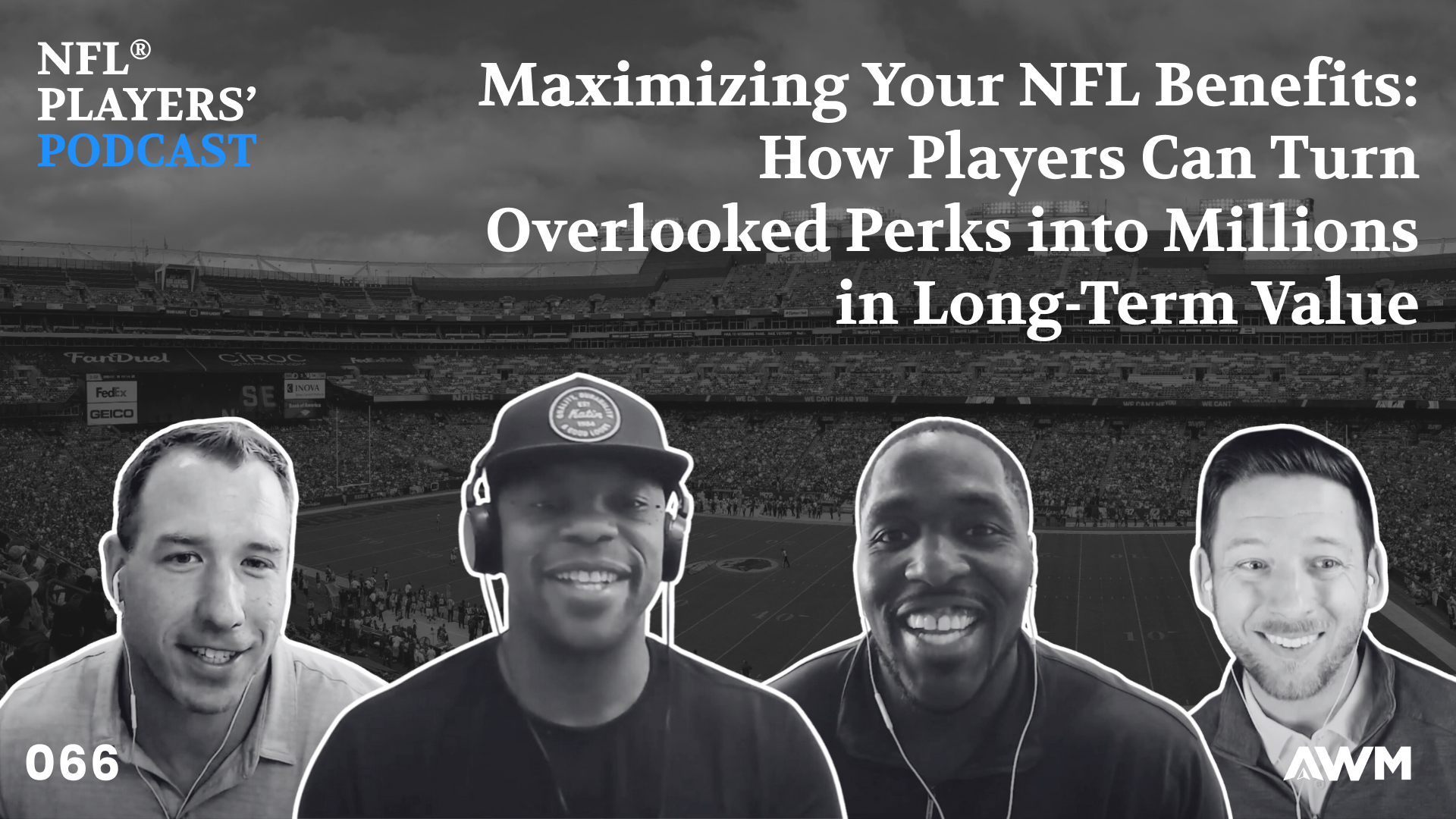Get The Returns You Deserve in Real Estate | NFL Players’ Podcast #17

Athletes must carefully research real estate investments - seek proven advisors or choose public REITs.

If you do not have the time or energy to learn about how true professionals go after the returns they deserve, then find an advisory team that will unbiasedly vet the deals for you or just go buy a publicly traded Real Estate Investment Trust.
If you want to explore the best ways to allocate money to real estate, listen to this podcast or Aaron Golderberg’s recent PGA Players Podcast #14 and always ask the right questions before investing. The most important question being the track record of the private real estate shop and if they have “skin in the game.” You also want to know their specialty niche in the market and when the cash flow will make it to you.
I also share some of the mistakes I made and saw my teammates make when it came to real estate investing and NFL Players.
If you have any specific questions, please let me know at zmiller@awmcap.com
Transcript
Zach Miller (00:06):
Hey guys, welcome back to The NFL Players Podcast. I'm your host, Zach Miller. This week, we're going to continue with private investments, and really look at real estate, and see if that's a place we can get the returns we deserve. It's obviously an easy to understand asset class. It's easy to understand because you can feel, touch it. It's a little bit easier to understand that a financial asset, like a stock and a bond. But, before we get into that, I just have to real quickly get into this discussion on the biggest driver of your net worth and your wealth and generational wealth as an NFL player is what we call human capital.
Zach Miller (00:42):
This is just your future earnings in the NFL to be able to go out, play, earn another contract, fulfill the contract you're currently under, and turn that human capital, those earnings that are out into the future, to realize those and be able to put them into investments for your long term future, for your kids' future. When it comes to protecting your wealth, you really have to do whatever it takes to make that human capital come into reality and earn those contracts. When it comes to off the field I encourage everyone to make sure you're doing the right thing when it comes to things off the field, because you do not want to end up on the wrong side of Roger Goodell and the NFL shield, because for right or wrong, if they come after you, there is no other football league to go earn a living in. There is no other football league that can pay like the NFL does.
Zach Miller (01:39):
So, while it doesn't matter if it's fair or not. You want to win the game when it comes to earning as much as you can when you play in the NFL. Anything that can protect your human capital is something you really have to look at, make sure it's part of your plan. Whether that's doing the right thing off the field, or some type of insurance, maximizing your human capital and your performance on the field is what drives your wealth. It's something that you just got to know as a player, because careers are so short, you only have such a short period of time to maximize your earnings, that you can not let something off the field jeopardize that.
Zach Miller (02:18):
As we explore looking at real estate, we really have to understand what kind of investments make sense, everything around it. I really encourage everyone to listen to the PGA Players Podcast done by one of our advisors, Aaron Goldberg. He brings on two former athletes as guests that are actually in the private real estate arena right now, and they really do a great analysis and get into the details, and do a really good podcast as an intro to, if you're really interested in private real estate and getting the returns that you deserve, which is not as easy as it looks, you really should listen to that podcast. I will cover a little bit of the key points from it, but it's really a good podcast. I encourage you to jump over there and listen to Aaron Goldberg's PGA Players Podcast for more details.
Zach Miller (03:08):
With real estate, you really have to look at it from, when we say financial structure, this is your entire net worth, and your human capital, everything included in your financial life, and see if it makes sense to allocate to private real estate, and in any private investments, because first you want to have, a core foundation of your financial structure is your protective reserve. It's your liquid fixed income that allows you to ride out adversity, whether that's market adversity or personal adversity, in acute distress, you're able to make it through any kind of disruption there. Then, you want to have your core public stock market equity exposure to really build your wealth. That's what the wealthy do. So much of their money is in the public stock market.
Zach Miller (04:00):
Then, once you're able to have that, then you can actually start looking at at private investments, and whether that's venture capital or private real estate, it can make sense, but you have to understand what kind of investment you're getting into. Really, there is so much of, usually, and myself included, your personal property, which is your home you live in, is already in real estate. You do have exposure to it, and you don't want to allocate too much to your personal property. This is different for everyone, but you want, I think, around 80% at a minimum of your assets working for you in investments. I think that's a good kind of rule of thumb. Obviously, it's different for every person. But, you don't want any more than 20% of your personal assets of your net worth not invested, not working for you, not earning your return.
Zach Miller (04:58):
As you're looking at real estate as an investment you want to, and this is common, this happened to a few of my teammates, myself. You play on so many different teams in the NFL, whether you sign as a free agent somewhere or you're traded, you can start collecting homes. Homes are consumption assets. They have expenses attached to them, carry costs of owning the home, that it's a consumption asset. Your home is not an investment because you always have to have somewhere to live. If a house goes up in value, you're going to sell it and then go into the same real estate market that is also appreciated in value. I would never look at a home as an investment. I would look at it as a consumption asset. That's a huge mistake sometimes people make, is they just assume that owning a lot of real estate is what the wealthy do. Well, yes, they own some real estate, but they own it in the right way, and they own it by going after the returns that they're actually compensated for.
Zach Miller (05:58):
As we talk about the real estate market and the private and private investment side of the real estate market, you really have to understand there's some main areas, whether that's commercial, residential, multifamily, warehouses, these are areas of the real estate market that a lot of these real estate private investment shops find a niche, and they know this area, they know a geographic region, and they get really good at these areas. Coming in and competing with these as an outside investor is very tough. There's a big learning curve. Allocating to some of these places will a lot of times get you a better return than trying to do it yourself.
Zach Miller (06:41):
If you're trying to do, I've heard the BRRR Method mentioned, be careful what you take advice from, because a lot of times that advice, when you're wealthy, the BRRR Method really is not what you should be doing. That's buy, renovate, refinance, and repeat. You can definitely allocate to real estate, but I would not do it that way. There is way more efficient ways to do it. Doing it on your own is usually a mistake. Unless you like to be a landlord, unless you like dealing with tenants, especially multifamily, evicting people, just understand what you're signing up for when it comes to real estate. There is better ways to get returns than becoming a real estate mogul and trying to do everything yourself, especially once you have some wealth. A lot of times, I know myself, I don't like being a landlord. I want no part of that. It's definitely something to understand before you get into any real estate investment.
Zach Miller (07:38):
Then, as you're looking at possibly allocating to private equity, what we do here is we have professionals that we can have vet a deal. They can look at the assumptions, which is, if you're going to do a private investment in real estate, you have to look at the assumptions. What numbers are they using? This is true of stock valuation, too. What numbers are they using going into the model? Are they realistic? Can you question those? If you're looking at a private investment shop, what's their track record? Are they new to the scene? I mean, you want someone with an established track record that has proven they can do it, and especially in that area, especially in that area of expertise.
Zach Miller (08:15):
Then, understand, what area of the market are they investing? Is it core, which is a little bit less uncertainty, so the returns might be a little bit less? Is it value add? Is it developmental? You're waiting a long time to get your cash back on some of those. Or is it a zoning risk, land entitlement? Do they need to change the zoning on it, and there's risk associated with that and uncertainty associated with that. You just understand, really encourage you to listen to that podcast that goes into these in more detail. I won't do it here. I'll just stay high level.
Zach Miller (08:49):
But, the other part of the real estate market, that if you don't want to be in too involved with it, there's always public REITs. You can buy a REIT and you get an allocation to real estate, and let it be professionally managed, versus private investment, private equity. The drawback with the REITs is they're inefficient. They're required to distribute a certain amount of their cash flows, so they can be tax inefficient as well. With private real estate, a little more efficient. You can actually have more control, more customization, and actually pick the deals you want to be in. Big advantage of real estate, I've said this before in other podcasts, it's the baby of the tax code. It's, whether a 1031 exchange, whether the depreciation tax shield, which is you're able to depreciate the building, which can make an investment cashflow positive, but actually a tax loss. There's definitely parts of the tax code that encourage real estate investing, but you also want to make sure it's a good investment, and not just invest because of some type of tax savings.
Zach Miller (10:04):
Finally, the last question to really ask is, when are you going to get paid back? How long is that money tied up for? How liquid is it? Can you get out if you needed to? Really understand the illiquidity of the real estate investment, and understand when the cash flows come, understand the niche you're in with that private equity shop, and what their specialty is. Then, really have someone, have a professional, and that's what we do here, that's a chartered financial analyst look at the deal and be able to say, "This could be a good investment," or some type of vetting of the deal. Because, without a professional looking at it, you're just going to make mistakes that you don't have to make. There's better ways to build wealth than making mistakes in real estate.
Zach Miller (10:52):
Before we go, one last thing I did want to mention is, non-recourse debt is actually a huge advantage of using a private shopped, because they're going to get the loan for you. You don't have to worry about financing, going through the loan approval process, and then your stops at zero. As a limited partner, your initial investment is all you can lose. This is a huge advantage when you have a substantial net worth, and being able to not have any liability besides your initial investment is a great thing. It's what makes non-recourse debt such a big part in the leverage associated. It's why returns can be high in private real estate, because of the leverage. But, with leverage also comes a risk. Then, the other really important thing is, make sure that whatever sponsor you're putting money with for a private investment, make sure they have skin in the game. If they don't have skin in the game, I mean, that's suspicious that they're not fully believing in the deal, and they're not putting their own capital at risk. They should be putting their money in along with you, or it's probably not a good deal.
Zach Miller (12:00):
As always, thanks for watching. Like, subscribe, send me an email. Send my podcast to anyone you think needs it, maybe someone that's in the NFL that is newer to investing or is going to have wealth. Send my podcast to them, because my entire goal is to give unbiased advice to guys like myself that needed it when they were playing, and to not let themselves be taken advantage of, and go get the returns they deserve. I'll see everyone next week.
Share this post
Related articles
Your Family Office

We're here to help you navigate.
Our advisors are ready to serve as your Athlete Family Office.
Your Family Office

We're here to help you navigate.
Our advisors are ready to serve as your Athlete Family Office.


